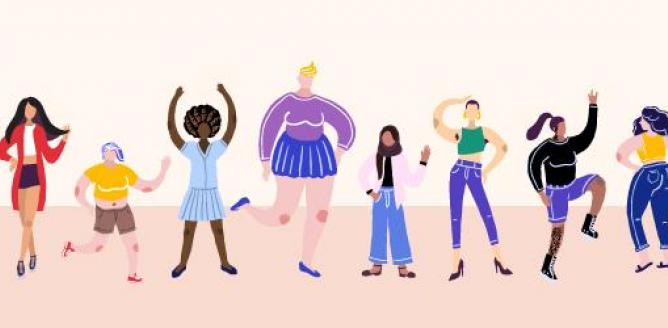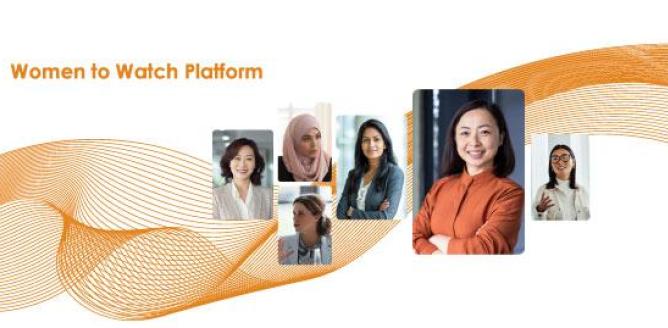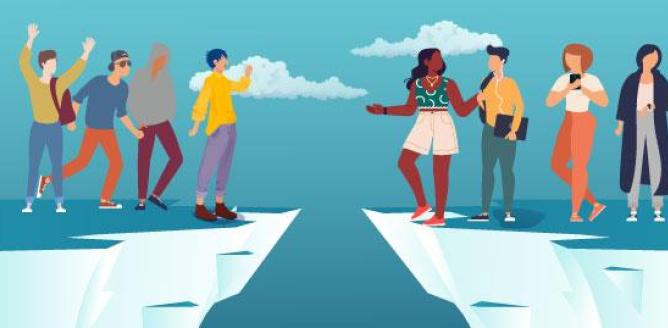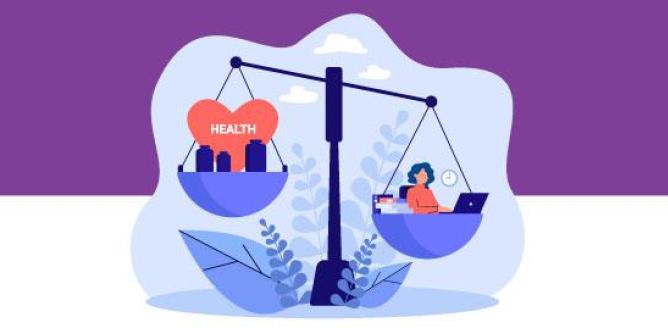“Why is there a stigma around being different when we’re all different?" Winnie Harlow, model and vitiligo campaigner
There is enormous social pressure to conform to accepted standards of how we should look. No one is immune but the pressure is particularly acute for those who identify as women and girls. From cultural expectations to advertising giants to social media posts, our external appearance has been given enormous power, emphasising that thin is good, conventional beauty is important and that we should strive to look younger than we are, whatever the means.
Many people face discrimination or abuse in real life and online, because their appearance does not conform to society’s expectations of ‘normal’ or desirable. The damaging consequences of this superficial but pervasive obsession include anxiety and low self-esteem, a lack of confidence that prevents people from reaching their potential. More seriously, body shaming can lead to mental health issues including eating disorders, body dysmorphia, depression and even suicide.
The body positive movement has been gaining momentum, growing from size acceptance to encompassing any visible difference and celebrating diversity. The Dove Real Beauty campaign started in 2004 and other companies have followed suit, including The Body Shop with its Self-Love campaign. Social media has contributed significantly to the movement with Instagram full of #LoveTheSkinYou’reIn, #BOPO and myriad other body positive hashtags.
But there is a lack of visibility for some groups, including people with disabilities or with skin conditions like vitiligo, for example. There is some progress here, with fashion designers choosing diverse models in an industry that has traditionally thrived off of difficult-to-maintain body standards and a strict age range.
While eliminating rigid beauty standards is necessary work, it will not be enough to cultivate a healthy mind-body relationship. We must change how we and - in turn, society - think about our bodies. Our bodies are biological marvels that serve us in many unique ways that often go unrecognised. They carry our stories -- our scars, lines, wrinkles, stretch marks and our distinguishing features that make us unique and authentic. A new movement, rejecting the commercialisation of body positivity has emerged, body neutrality. This movement encourages us to move away from loving or hating our body and instead focus on its functionality and actuality -- how our bodies move through the world, carrying us and supporting us from moment to moment, shaping who we are and telling the story of our lives.
TWF has advocated for the positive portrayal of women in the media and an end to the damaging gender stereotypes and impossible expectations that women and girls face. Our documentary, SheObjects, sought to raise awareness about these pressures and support positive portrayals of women in the media. This documentary inspired our Media Literacy Programme, which equips secondary school students with tools to understand and filter harmful media messaging. Through the campaign #MyRealCareerLine we spotlighted many of the double standards women face in the workplace, particularly around appearance, and encouraged a shift to championing women’s career accomplishments. Given how entrenched gender stereotypes are, much more needs to be done by parents, educators, employers and each of us in the community to effectively eliminate them.
Embracing our bodies for what they do and encouraging others to do the same is one place to start.
Get in touch at Fiona.Nott@twfhk.org.





















